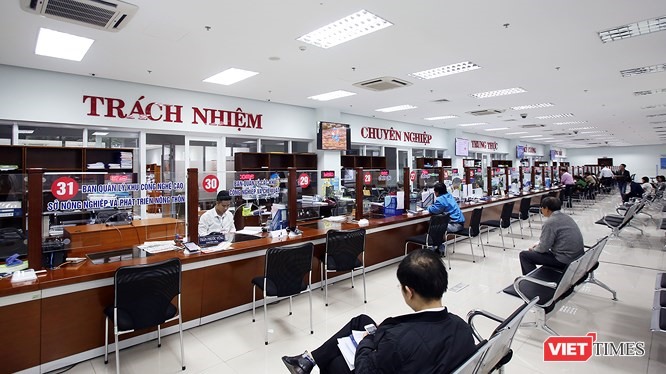 Society
Society

After receiving a scholarship from Đà Nẵng City authorities, DN (not her real name) left her hometown for France to study in 2005. Three years later, she returned home and began working at a department in the city.
 |
| In 2004, Đà Nẵng became the first locality to pioneer a project offering free training courses, good working conditions and high salaries with the hope that the candidates would boost the city’s development.— Photo viettimes.vn |
HÀ NỘI — After receiving a scholarship from Đà Nẵng City authorities, DN (not her real name) left her hometown for France to study in 2005. Three years later, she returned home and began working at a department in the city.
N said the work was suitable with the subjects she learnt and the working environment was not boring.
However, she was very displeased with her salary.
“My monthly salary stayed unchanged [about VNĐ4 million (US$175] per month for seven years,” she told Tiền Phong (Vanguard) newspaper.
“With such low pay, no one wants to do the job,” she said adding that she kept at her work as she felt a responsibility to the city, having received a scholarship.
After fulfilling her seven years work commitment to the city, she quit her job and moved to work in another city.
MT, another scholarship recipient, has a similar story.
T finished information and technology studies at a foreign university and worked as an officer in a municipal department.
Asked why he decided not to stop working for the government agency, T said he wanted to take another opportunity.
An official from the city’s Department of Home Affairs who knew about his case said wage was a matter of concern.
The official told the Voice of Việt Nam that in new position T could get paid as much as a dozen times higher than his previous role.
N and T were among 40 members of the city’s talent training project who reportedly resigned or moved to other jobs after working for the local government.
In 2004, Đà Nẵng became the first locality to pioneer a project offering free training courses, good working conditions and high salaries with the hope that the candidates would boost the city’s development.
Under the project, commonly known as Project 922, the city granted scholarship to a number of talented people to go abroad to study. Learners had to sign a contract that after the course they would return to work for city for at least seven years, otherwise they would have to pay compensation.
According to Nguyễn Văn Chiến, deputy head of Đà Nẵng’s Department of Home Affairs (DHA), despite great efforts, the city failed to provide the best working conditions for those in the project.
In the past, the city had a policy to support each learner with VNĐ1 million (US$44) per month. But the policy was suspended as it was against other Government regulations, he said at a press conference on the matter.
According to Vũ Ngọc Đồng, the head of the DHA, facing a human resource shortage, especially in the public sector, city authorities have issued many policies on human resource development including the one to attract employees with high intellectual standards for training since 1997.
The city has run Project 922 since 2004, using State capital to fund 647 talented people to study abroad. Of these, 460 have finished training, returned and began working for the city, he said.
Many of them are capable of holding important positions in government agencies, contributing to the development of the city.
However, he admitted there were a number of shortcomings in the implementation of human resource development and training work. He also acknowledged a lack of harmony between attracting, training and providing preferential treatment to talented people.
Incorrect forecasts have resulted in the fact that some learners could not find suitable jobs after finishing training or local authorities would not utilise them.
To solve these shortcomings, the city plans to adopt measures to ensure harmony between training works and attraction of talented people, Đồng told Việt Nam News.
Priority would be given to enhancing competence for existing public servants by offering them short-term training.
When there is a need to supplement high-quality human resources, students in the final year of university or postgraduate students will be chosen to continue training.
In addition, to ensure the effectiveness of human resource development, every year, the city People’s Committee will aim to train for the following year based on the demand of agencies in the city. The pursuing of talents for long-term employment must be linked to assigned jobs and payroll norms, he said.
In the future, the city authority would review the arrangement of learners to make use of their talent.
The chairman of city People’s Committee will soon hold a meeting with learners to understand their aspirations and help solve their problems so they can make more contributions to the city, he said. — VNS




